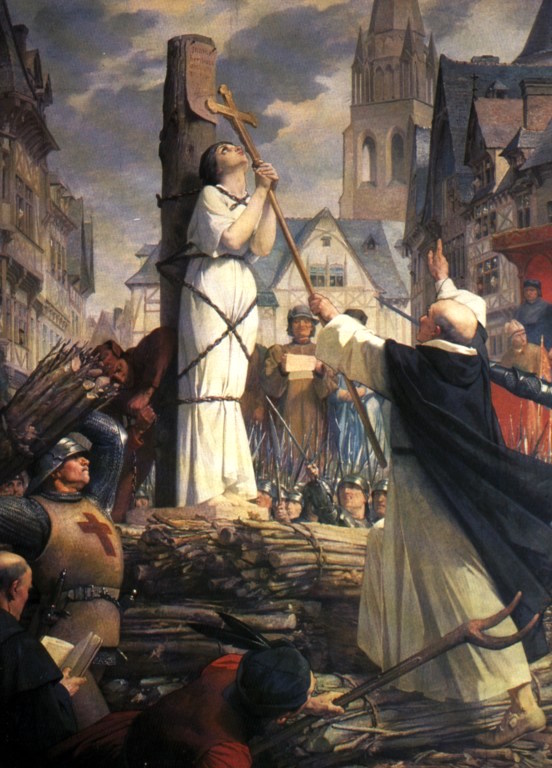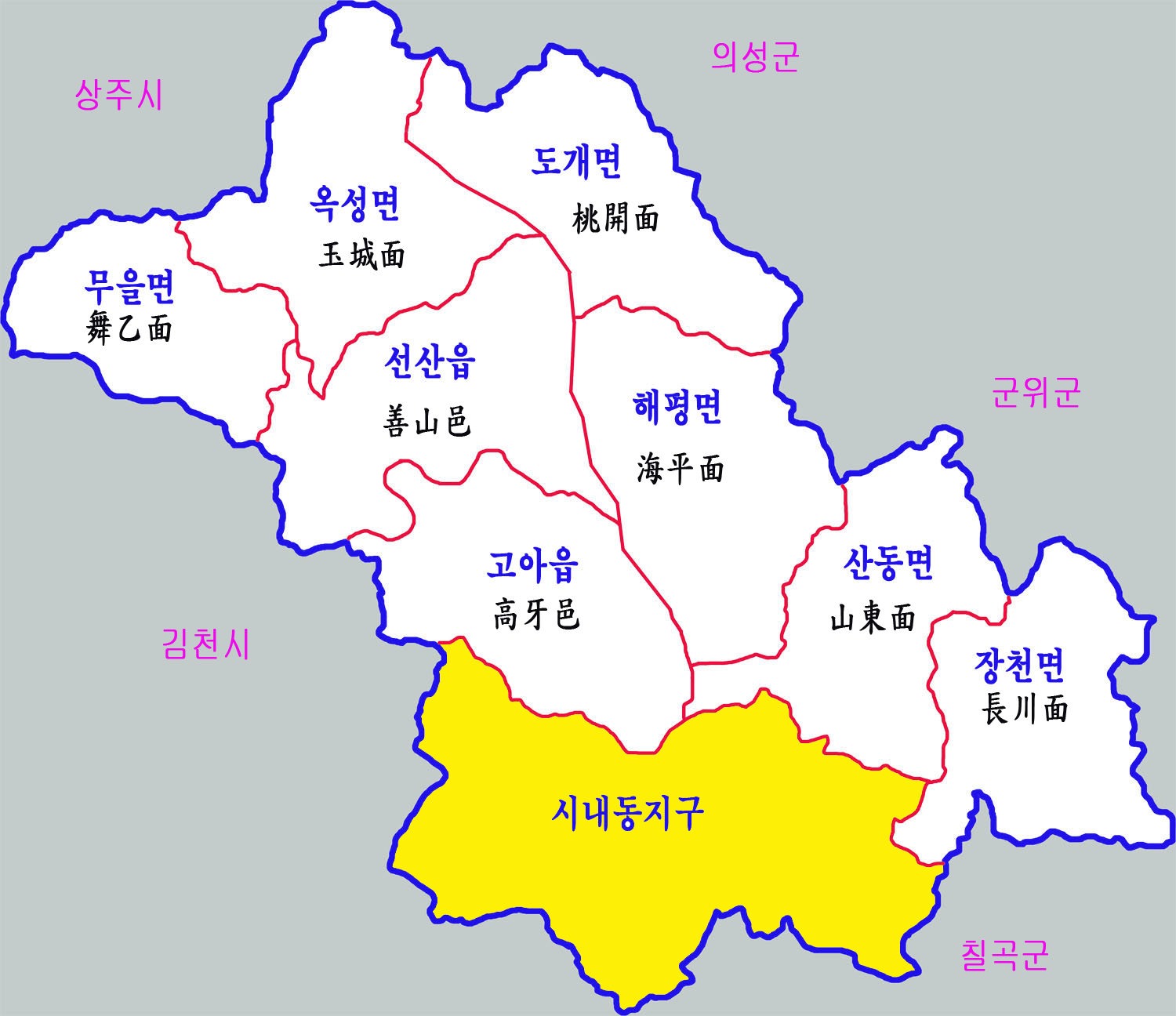|
Kim Jong-jik
Gim Jongjik (Hangul:김종직, 1431–1492), often known by his pen name Jeompiljae(점필재), was a leading Korean Neo-Confucian scholar in the early Joseon Dynasty. He was born in Miryang in Gyeongsang province, to a yangban family of the Seonsan Gim lineage. He passed the ''jinsa'' literary licentiate examination in 1453 and the higher examination in 1459. After passing the examination, Gim entered government service, holding a wide range of positions. He earned the special favor of King Seongjong, as well as the enmity of the Hungupa (Loyal Retainers) faction. After his death, Gim Jongjik's writings became the basis for the First Literati Purge of 1498 under the rule of Prince Yeonsan who then became the tenth king of Joseon as Yunsangun. His students included Kim Ilson who was killed in the first Korean literati purge, and Gim Goeng-pil, who was killed in the subsequent Second Literati Purge or Gapja massacre of scholar along with many others. Later Gim Jongjik ... [...More Info...] [...Related Items...] OR: [Wikipedia] [Google] [Baidu] |
Yerim Seowon
Yerim Seowon is a former seowon in Miryang, Gyeongsangnam-do. It is located in Bubuk-myeon on the slopes of Jongnamsan, in the valley of the Miryang River. The Yerim Seowon was built in 1567 by Yi Do-u to enshrine Kim Jong-jik, a Confucian scholar and politician who was native to Miryang. At that time it bore the name "Deokseong Seowon." Destroyed during Hideyoshi's invasions of Korea in the 1590s, it was rebuilt in 1606. In 1669 it received a royal warrant. The seowon, like most of those across Korea, was closed by order of the regent Daewon-gun Heungseon Daewongun (흥선대원군, 興宣大院君, 21 December 1820 – 22 February 1898; ), also known as the Daewongun (대원군, 大院君), Guktaegong (국태공, 國太公, "The Great Archduke") or formally Internal King Heungseon Heon ... in 1871. However, beginning in 1874 local scholars once again began to gather there, although it no longer served as a school. It continues in use as a shrine today, and was desig ... [...More Info...] [...Related Items...] OR: [Wikipedia] [Google] [Baidu] |
15th-century Korean Poets
The 15th century was the century which spans the Julian dates from 1 January 1401 ( MCDI) to 31 December 1500 ( MD). In Europe, the 15th century includes parts of the Late Middle Ages, the Early Renaissance, and the early modern period. Many technological, social and cultural developments of the 15th century can in retrospect be seen as heralding the "European miracle" of the following centuries. The architectural perspective, and the modern fields which are known today as banking and accounting were founded in Italy. The Hundred Years' War ended with a decisive French victory over the English in the Battle of Castillon. Financial troubles in England following the conflict resulted in the Wars of the Roses, a series of dynastic wars for the throne of England. The conflicts ended with the defeat of Richard III by Henry VII at the Battle of Bosworth Field, establishing the Tudor dynasty in the later part of the century. Constantinople, known as the capital of the world an ... [...More Info...] [...Related Items...] OR: [Wikipedia] [Google] [Baidu] |
Korean Confucianists
Korean may refer to: People and culture * Koreans, ethnic group originating in the Korean Peninsula * Korean cuisine * Korean culture * Korean language **Korean alphabet, known as Hangul or Chosŏn'gŭl **Korean dialects and the Jeju language **See also: North–South differences in the Korean language Places * Korean Peninsula, a peninsula in East Asia * Korea, a region of East Asia * North Korea, the Democratic People's Republic of Korea * South Korea, the Republic of Korea Other uses *Korean Air, flag carrier and the largest airline of South Korea See also *Korean War, 1950–1953 war between North Korea and South Korea *Names of Korea, various country names used in international contexts *History of Korea The Lower Paleolithic era in the Korean Peninsula and Manchuria began roughly half a million years ago. Christopher J. Norton, "The Current State of Korean Paleoanthropology", (2000), ''Journal of Human Evolution'', 38: 803–825. The earlies ..., the history of Kor ... [...More Info...] [...Related Items...] OR: [Wikipedia] [Google] [Baidu] |
Neo-Confucian Scholars
Neo-Confucianism (, often shortened to ''lǐxué'' 理學, literally "School of Principle") is a moral, ethical, and metaphysical Chinese philosophy influenced by Confucianism, and originated with Han Yu (768–824) and Li Ao (772–841) in the Tang Dynasty, and became prominent during the Song and Ming dynasties under the formulations of Zhu Xi (1130–1200). After the Mongol conquest of China in the thirteenth century, Chinese scholars and officials restored and preserved neo-Confucianism as a way to safeguard the cultural heritage of China. Neo-Confucianism could have been an attempt to create a more rationalist and secular form of Confucianism by rejecting superstitious and mystical elements of Taoism and Buddhism that had influenced Confucianism during and after the Han dynasty. Although the neo-Confucianists were critical of Taoism and Buddhism, the two did have an influence on the philosophy, and the neo-Confucianists borrowed terms and concepts. However, unlike the Budd ... [...More Info...] [...Related Items...] OR: [Wikipedia] [Google] [Baidu] |
1492 Deaths
*
{{Number disambiguation ...
149 may refer to: *149 (number), a natural number *AD 149, a year in the 2nd century AD * 149 BC, a year in the 2nd century BC *British Airways Flight 149, a flight from LHR to Kuwait City International Airport; the aircraft flying this flight was destroyed by Iraqi troops See also * List of highways numbered 149 The following highways are numbered 149: Canada * Prince Edward Island Route 149 Costa Rica * National Route 149 (Costa Rica), National Route 149 India * National Highway 149 (India) Japan * Japan National Route 149 United States * Alabama St ... [...More Info...] [...Related Items...] OR: [Wikipedia] [Google] [Baidu] |
1431 Births
Year 1431 ( MCDXXXI) was a common year starting on Monday (link will display the full calendar) of the Julian calendar. Events January–December * January 9 – Pretrial investigations for Joan of Arc begin at Rouen in France, which is under English occupation. * February 21 – The trial of Joan of Arc for heresy begins. * March – Alexander I Aldea takes the throne of Wallachia with support from Alexander I of Moldavia. * March 3 – Pope Eugene IV succeeds Pope Martin V, to become the 207th pope. * May 30 – Nineteen-year-old Joan of Arc is burned at the stake in Rouen. * June 16 – The Teutonic Knights and Švitrigaila sign the Treaty of Christmemel, creating an anti-Polish alliance. * September – Battle of Inverlochy: Donald Balloch defeats the Royalists. * October 30 – The Treaty of Medina del Campo is signed, consolidating peace between Portugal and Castille. * November 9 – The Battle of Ilava: The Hungarians ... [...More Info...] [...Related Items...] OR: [Wikipedia] [Google] [Baidu] |
Jo Gwang-jo
Jo Gwangjo (, 23 August 1482 – 10 January 1520), also often called by his pen name Jeong-am (), was Neo-Confucianism, Korean Neo-Confucian scholar who pursued radical reforms during the reign of Jungjong of Joseon in the early 16th century. He was framed with charges of factionalism by the power elite that opposed his reform measures and was sentenced to drink poison in the Korean literati purges, Third Literati Purge of 1519. He has been widely venerated as a Confucian martyr and an embodiment of "seonbi spirit" by later generations in Korea. Some historians consider him one of the most influential figures in 16th century Korea. He is known as one of the 18 Sages of Korea () and honored as Munmyo Baehyang (). Life Early years Jo Gwangjo was the son of Jo Wongang (조원강, 趙元綱) and was from the Hanyang Jo clan (한양조씨, 漢陽趙氏). Jo studied under neo-Confucian scholar Kim Gwoeng-pil, Kim Jong-jik's disciple who was in exile at the time following the Ko ... [...More Info...] [...Related Items...] OR: [Wikipedia] [Google] [Baidu] |
Nam Gon
Nam Gon ( ko, 남곤, 南袞; 147110 March 1527) was a Korean politician, poet, Neo-Confucian scholar, thinker, writer and Prime Minister during the Joseon Dynasty. His nicknames were Jijeong (지정, 止亭), Jijokdang (지족당, 知足堂) and Jijok (지족, 知足), while his courtesy name was Sahwa (사화, 士華). He was also a member of the Sarim faction. Family Parents *Father: Nam Chi-shin (남치신) ** Grandfather: Nam Gyu (남규, 南珪) ** Grandmother: Lady Park of the Miryang Park clan (밀양 박씨) *Mother: Lady Ha of the Jinju Ha clan (진주 하씨) ** Grandfather: Ha Bi (하비, 河備) Sibling(s) * Older brother: Nam Po (남포, 南褒) (1459 - 1540) ** Sister-in-law: Lady Jeong (정씨, 鄭氏) *** Nephew: Nam Jeong-jin (남정진, 南廷縉) Wives and their children *Lady Yi of the Yeonan Yi clan (정경부인 연안 이씨); daughter of Yi Se-eung (이세웅, 李世雄) **1st daughter: Lady Nam of the Uiryeong Nam clan (의령 남씨) *** Son-in-law: Yi ... [...More Info...] [...Related Items...] OR: [Wikipedia] [Google] [Baidu] |
List Of Korean Philosophers ...
This is a sortable list of Korean philosophers. List ;Three Kingdoms *Woncheuk 원측 圓測 (613–696) *Wonhyo 원효 元曉 (617–686) ''see Essence-Function'' *Uisang 의상 義湘 (625–702) *Seol Chong 설총 薛聰 (650–730) ;Goryeo ;Joseon dynasty ;Modern Korea {, class="wikitable sortable" !Name !Hangeul !Pen name ! !Hanja !Dates , - , Yun Chi-ho , 윤치호 , Jwaong , 좌옹 , 佐翁 尹致昊 , 1865–1945 , - , T. K. Seung , 승계호 , , , , 1930–2022 , - , Kim Jaegwon , 김재권 , , , , 1934–2019 See also * Korean philosophy * Korea Philosophers A philosopher is a person who practices or investigates philosophy. The term ''philosopher'' comes from the grc, φιλόσοφος, , translit=philosophos, meaning 'lover of wisdom'. The coining of the term has been attributed to the Greek th ... [...More Info...] [...Related Items...] OR: [Wikipedia] [Google] [Baidu] |
Joseon Dynasty Politics
The politics of the Joseon dynasty, which ruled Korea from 1392 to 1897, were governed by the reigning ideology of Korean Confucianism, a form of Neo-Confucianism. Political struggles were common between different factions of the scholar-officials. Purges frequently resulted in leading political figures being sent into exile or condemned to death. The political system of this period was dominated by a Confucianist bureaucracy. The government officials were ranked in 18 levels, ranging from senior first rank (jeong-il-pum, Hangul: 정1품, Hanja: 正一品) down to junior ninth rank (jong-gu-pum, 종9품, 從九品) based on seniority and promotion, which was achieved through the royal decree based on examinations and recommendations. The power of the bureaucrats often eclipsed that of the central authorities, including the monarch. For much of the dynasty, a complex system of checks and balances prevented any one section of the government from gaining overwhelming power until th ... [...More Info...] [...Related Items...] OR: [Wikipedia] [Google] [Baidu] |
Gumi, South Korea
Gumi (; ) is the second largest city in Gyeongsangbuk-do, South Korea. It is located on the Nakdong River, halfway between Daegu and Gimcheon, also lies on the Gyeongbu Expressway and Gyeongbu Line railway which are the principal traffic routes of the country. The city is an industrial center of the country with many companies, including Samsung Electronics, LG Electronics, LG Display, having a manufacturing presence and R&D Centres there. The primary industries are electronics and IT Manufacturing such as Smartphone, Tablet computer, 5G networking equipment, Semiconductors, OLED and other Displays, Carbonated fibres, rubber, plastic and metal products. In Gumi, 1,772 companies employ over 80,000 workers. It is the largest scale in Korea. In 2009, the city exported the largest amount in the country and accounted for 96.9% of trade surplus of Korea in 2000 to 2009. The former President of South Korea, Park Chung-hee, was born in the city. History In the Three Kingdoms period ... [...More Info...] [...Related Items...] OR: [Wikipedia] [Google] [Baidu] |




